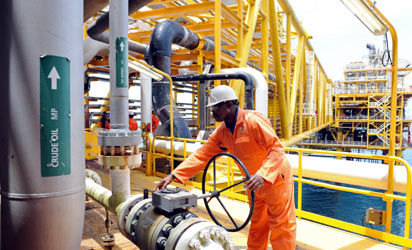The Stakeholder Democracy Network (SDN) has revealed in a research that suggests, probably for the first time, that low quality, highly toxic fuels are sold to Nigeria by international commodity traders, who allegedly exploit the country’s weak and poorly enforced fuel regulations.

Unveiled on Tuesday, May 19, 2020, the study also discovered that, although the quality of unofficial petrol and diesel (from artisanal refineries using stolen crude, primarily in the Niger Delta) also fall well below international standards, these were often of better quality than officially imported fuels.
Using either official or unofficial fuels is worsening already heavily polluted environments, serious health impacts, and costs of fixing the damage to engines and generators these fuels cause, said SDN, a UK-based group that is a member of the National Coalition on Gas Flaring & Oil Spills in the Niger Delta (NACGOND).
SDN’s research suggests official and unofficial fuel production and use is responsible for 50% of Port Harcourt city’s air pollution, which is plagued by a soot problem. The Niger Delta already suffers environmental, health, and livelihood impacts from decades of oil spill pollution, associated gas flaring, and artisanal refining.
The research, added SDN, indicates that the Niger Delta not only experiences the repercussions of producing crude oil and unofficial refined fuels, but also in the consumption of dirty official and unofficial fuels.
“This is even more concerning at a time when Nigeria is facing an outbreak of the coronavirus. High levels of air pollution and pre-existing respiratory and other health conditions may increase the risk that Covid-19 poses to the health of the population of the Niger Delta, where the majority of unofficial fuels are produced, and more widely in Nigeria where low quality fuels are also consumed,” disclosed the group in a media statement made available to EnviroNews.
Already, the World Bank reports that 94% of the population of Nigeria is exposed to air pollution that exceeds WHO guidelines, with Aba, Umuahia, Onitsha, and Kaduna designated as four of the worst air-polluted cities in the world. Observers believe that this will continue to worsen without action on regulation.
“Our research suggests Nigeria is having dirty fuel dumped that cannot be sold to other countries with higher and better implemented standards. The situation is so bad that the average official diesels sampled are of an even lower quality than that produced by artisanal refining camps in the creeks of the Niger Delta,” said Florence Kayemba, Programme Manager of the SDN.
The group adds: “The average official diesels sampled were 2,044ppm (parts per million) for sulphur – over 204x the limits the European Union (EU) sets as safe, compared to 1,523ppm in the average unofficial diesels sampled, still over 152x the EU’s limit.
“Fuel quality tests should be carried out nationwide immediately to explore the extent of poor fuel distribution. Improved standards for fuel quality were approved in Nigeria by the Standards Organisation of Nigeria in 2017, but enforcement is evidently weak to non-existent by responsible agencies.
“As the issue has reached a severe point, and with the outbreak of Covid-19, there must be no further delay in raising and enforcing existing standards across the supply chain, and for all responsible stakeholders to be held to account.
“To reduce the impact of the disruption this may temporarily cause to the import of refined fuels into Nigeria, there would need to be simultaneous improvements in public transport and electricity supply to reduce consumption in vehicles and generators.”
